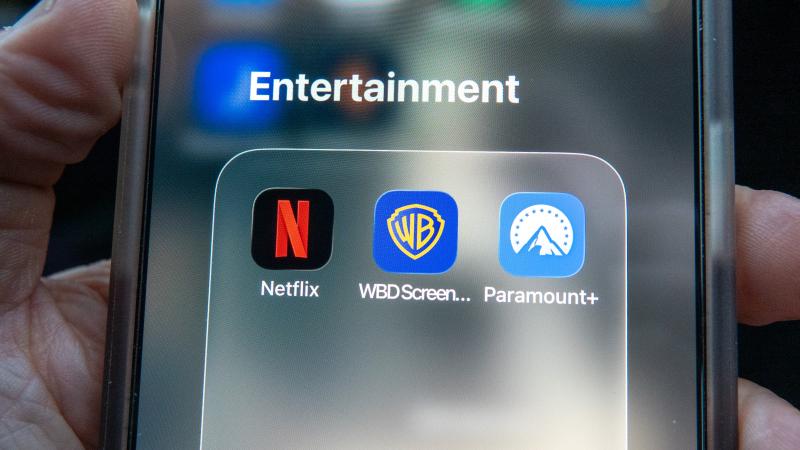Merriam-Webster adds new meaning for 'color-blind,' says it can show racism
The term "often suggests a refusal to acknowledge many racial inequities, or to acknowledge important aspects of racial identity."
Two months ago, Merriam-Webster added an explanatory note to its definition of the word "color-blind."
Though the term means "not influenced by differences of race," and especially "treating all people the same regardless of race," color-blind can also have a racist connotation, according to the influential dictionary.
The race-related sense of the word "can be used with positive connotations of freedom from racial prejudice," the note says, but "it often suggests a failure or refusal to acknowledge or address the many racial inequities that exist in society, or to acknowledge important aspects of racial identity."
The nearly 200-year-old publisher of reference works didn't announce the change, and its users apparently didn't notice.
Brown University economist Glenn Loury, who signed the recent 1776 Unites statement against compulsory "anti-bias" training and hosts an interview show, told Just the News the change was "disturbing." Columbia University linguist John McWhorter, a prominent critic of "anti-racism" who also signed the statement, did not respond to queries.
The revised listing gives two examples of the negative connotation of "color-blind." One cites an Inside Higher Ed interview from last fall that says "[e]quitable instruction isn't colorblind" but is rather "responsive to students' unique and diverse backgrounds." The other cites a Washington Post essay from 2018 that said "white parents often refrain from speaking with their children about race, racism and racial inequality" but tend to use "colorblind rhetoric" when they do.
Merriam-Webster's competitor Dictionary.com has not added a negative connotation to its definition of the word, however. It defines color-blind in its race-related sense as "showing or characterized by freedom from racial bias; not influenced by skin color."
Alveda King, an evangelist and niece of Martin Luther King Jr., wrote a book last year called "We're Not Colorblind: Healing the Racial Divide." She told Just the News that referring to yourself as colorblind, which is taken from a medical condition, is "inconsistent with truth" because "we need to have eyes wide open."
But King also distinguished between color and race. "Our racial identity is singular. There's one human race," and humans are "one blood" in the words of Acts 17, she said: "Our racial identity is not identified by skin color." Judging each person by content of character, in her uncle's famous quote, does not mean people should ignore skin color, King said.
Emily Brewster, a senior editor at Merriam-Webster, told Just the News that she wasn't sure why the company didn't highlight this revision in its Jan. 27 announcement about the addition of more than 500 "words and meanings," as the "color-blind" revision was part of that batch.
She portrayed the revision to "color-blind" as typical of Merriam-Webster's process for making changes and updating definitions, which the company shares with the public "two, three times a year."
It has spent the past year or so on a large-scale review of race, gender and sexuality vocabulary, because such words are "shifting in meaning" more often than American language in general, she said.
Asked why the dictionary added an explanatory note instead of a full-on redefinition of "color-blind," Brewster said Merriam-Webster was "not afraid of changing definitions" but determined the note was sufficient. Since last fall, the company extensively revised race-related entries, publishing new definitions of "black," "brown" and "white" in January, she said.
The editor who reviewed the existing listing for "color-blind" consulted a wide variety of publications and commentary, finding enough evidence of language change to recommend an explanatory note on a new negative connotation, according to Brewster. "If nobody is offended by a word, the word isn't offensive," she said.
Merriam-Webster uses several "corpora" to study the evolution of language, from Lexis-Nexis and Twitter to its own curated volume dating back to the late 19th century, she said. The company's in-house collection spans "all corners of the English language," including comic strips, which is helpful when trying to define a "nuanced secondary meaning" of a common word.
An editor at the dictionary will typically write a draft and summary of evidence and share it with other editors, known as "definers." Some are more specialized than others, including in-house etymologists. The "director of defining" makes the final call on whether to update a listing, Brewster said. It doesn't consult outside groups, such as political activists, to suggest and review potential changes.
















